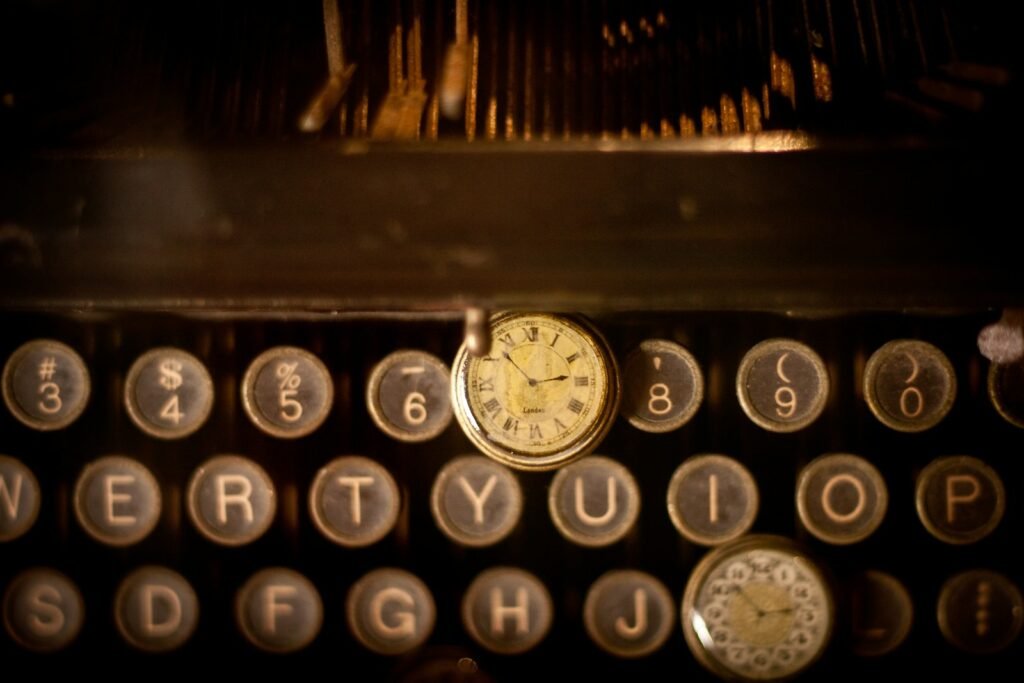
Choosing the Right Topic
Lost in a sea of possibilities, you find yourself gazing aimlessly at a blank canvas, searching for that elusive spark of inspiration. Fear not, oh wordsmith, for selecting the perfect topic is akin to choosing the most delectable ice cream flavor – it must be tantalizing, enigmatic, and leave you craving more.
Reflect on your interests, obsessions, and wonders. As Agatha Christie once mused, “The key to moving forward is simply to begin.” Immerse yourself in what ignites your spirit, whether it’s the cutting-edge advancements in technology, bygone historical epochs, or even the peculiar habits of sloths. Remember that exceptional essays are born from genuine fascination and zeal. While contemplating your myriad options, heed the sagacious counsel of Maya Angelou: “I’ve discovered that people may neglect what you uttered or did but they will forever remember how you made them feel.” Opt for a subject that not only enthralls you but also has the power to stir emotions and ignite dialogues. Let your essay resemble an impassioned missive to your chosen theme – brimming with ardor, acumen,and a sprinkle of enchantment.
Utilizing Online Databases
Traversing the immense expanse of data on the world wide web can be likened to a quest for a needle in a haystack. Online repositories are akin to hidden treasure troves waiting to be unearthed, offering an abundance of reliable sources right at your fingertips. It’s as if you have a mystical genie fulfilling your research desires with just a mere tap!
As you plunge into the realm of online databases, remember not to hastily judge a source by its appearance – or a website by its flashy facade! Take a moment to assess the credibility of the information. Like Mark Twain famously remarked, “Get your facts first, then you can distort them as you please.” Ensure that the data is emanating from trustworthy origins like scholarly publications, esteemed websites, or expert databases. So, do not be deceived by alluring headlines or extravagant layouts – delve deeper to unveil the concealed treasures of wisdom!
Evaluating Sources for Credibility
In the vast expanse of online information, distinguishing truth from falsehood can feel like navigating a maze of uncertainty. Abraham Lincoln’s cautionary words echo through the digital age: “Don’t believe everything you read on the internet.” It is imperative to sift through multiple reputable sources before accepting any information as fact. The age-old advice rings true: “Trust, but verify.”
Delving deeper into source evaluation entails unraveling the enigma of author expertise and bias. Mark Twain’s witty quip reminds us to prioritize facts over personal agendas: “Get your facts first, then you can distort them as you please.” Scrutinize the qualifications and motivations of authors to discern the authenticity of their narrative. Context is key in unraveling credibility, for as Shakespeare eloquently put it, “The fool doth think he is wise, but the wise man knows himself to be a fool.” Stay humble in pursuit of knowledge and perpetually question the veracity of your sources.
Taking Effective Notes
Entering the realm of note-taking, are you? Brace yourselves, dear readers, for this is where the enchantment unfolds! Imagine this: you’re in a lecture, and the speaker is on fire, showering you with pearls of wisdom. How can you contain all that knowledge without turning your brain into scrambled eggs the next day? Fear not! Effective note-taking is here to rescue you from chaos!
Let’s be clear – notes are not meant to be a verbatim record of the entire lecture. Oh no, that would lead straight to Dullsville. Instead, view them as your personal highlight reel. Select the gems, those “aha!” moments, and spicy quotes that ignite your mind. As famed author Janet Evanovich once remarked,” Take plenty of notes. They may seem nonsensical now, but five weeks later it will click!”. So scribble away, doodle in the margins or sketch stick figures if that’s your style. Just ensure those notes reflect who you are and capture what sparks excitement in your synapses.
Creating a Detailed Outline
The concept of creating a detailed outline may initially appear laborious, but let me assure you, it’s akin to programming your GPS before embarking on a journey – the payoff will be worth it! Picture it as the architectural blueprint for your essay, leading you through the labyrinthine paths of your thoughts and ideas. Even Michelangelo didn’t haphazardly attack his block of marble without a plan in mind!
Your outline should serve as a roadmap, guiding you through the terrain of your essay. Break down your main points into subpoints, and further dissect those into supporting details. It’s analogous to constructing a robust house – establishing a strong foundation is essential before adorning it with embellishments! As Abraham Lincoln famously remarked, “Give me six hours to chop down a tree and I will spend the first four sharpening the axe.” A meticulously crafted outline sharpens your focus and streamlines your writing process. Thus, roll up your sleeves, grasp hold of that metaphorical axe, and commence sculpting that outline into an opus!
Incorporating Citations Properly
Venturing into the realm of citations can feel like navigating a labyrinth constructed from tangled strands of letters. But fret not, brave scholars! Embracing the intricacies of citation management is akin to sprinkling the perfect seasoning onto a bland dish it enhances your writing to unprecedented levels and exudes an air of refinement that captivates even the most discerning critics.
In the realm of citations, heed the sage counsel of wordsmith Neil Gaiman: “Google may offer you 100,000 responses, but a librarian will provide you with the precise one.” Resist succumbing to the allure of hastily selecting the initial source that springs forth like a surprise toy. Delve deep into virtual archives with the fervor of an intellectual archaeologist uncovering hidden treasures. Remember, citing your references transcends mere evasion of plagiarism; it embodies acknowledging rightful attribution and celebrating diverse voices interwoven within your magnum opus. Thus, march onward, dear writers, armed with your invaluable citations, and triumph in essay warfare with elegance and panache!
Avoiding Plagiarism
Oh, the treacherous trap of plagiarism, a cunning villain that can swiftly tarnish your scholarly standing. Let us delve into the perplexing world of outsmarting this deceitful beast and navigating through your essays with finesse.
To begin, let us be unequivocal – appropriating another’s thoughts without acknowledgment is a grave offense. Agnes Repplier astutely remarked, “Originality is the fine art of remembering what you hear but forgetting where you heard it.” Embrace your inner Sherlock Holmes and infuse your unique perspective into your work. Remember, like fashion, your words shine brightest when they reflect your individuality.
Allow me to impart a nugget of wisdom. When in doubt, cite it out! In the words of the sagacious Neil Gaiman, “The main rule of writing is that if you do it with enough assurance and confidence, you’re allowed to do whatever you like.” So liberally sprinkle those citations throughout your essay without hesitation. Your educators will undoubtedly appreciate this gesture.
Utilizing Library Resources
Navigating the labyrinthine maze that is the library can often feel like embarking on a treasure hunt without a map, a perplexing journey through dusty shelves and mysterious aisles. But fret not, dear students! The library is more than just a confusing puzzle; it’s an enigmatic repository of knowledge waiting to be unearthed. How, you may ask, can one unlock the secrets of this literary goldmine?
First and foremost, do not shy away from seeking assistance. Librarians are akin to wise wizards in the realm of books, poised to lead you through the chaos of information overload. As acclaimed author Neil Gaiman once mused, “Google can provide you with 100,000 answers. A librarian can furnish you with the correct one.” Therefore, do not hesitate to enlist their expertise and allow them to infuse your research expedition with some much-needed enchantment. Remember: the library serves as more than just a repository for books; it stands as a bastion of support and wisdom awaiting discovery.
Seeking Feedback from Peers
In the realm of essay writing, seeking feedback from your peers can be a real game-changer. Picture this: you might believe your writing flows effortlessly like melted butter on a scorching summer day, but having another set of eyes on your work can shed light on any unnoticed blind spots. Even Shakespeare himself likely had trusted friends who provided valuable feedback on his iconic plays.
Imagine asking for peer feedback as embarking on a gastronomic escapade. You cook up a dish, convinced it’s a culinary masterpiece, only for your friend to take a bite and contort their face in response. That feedback serves as the elusive ingredient that can truly elevate your writing to new heights. Furthermore, bouncing ideas off one another can ignite creative sparks that lay dormant within you. As Oscar Wilde famously remarked, “I regard the theatre as the greatest of all art forms…”. Isn’t essay writing ultimately about sharing thoughts and establishing connections with readers at an intrinsic human level?


